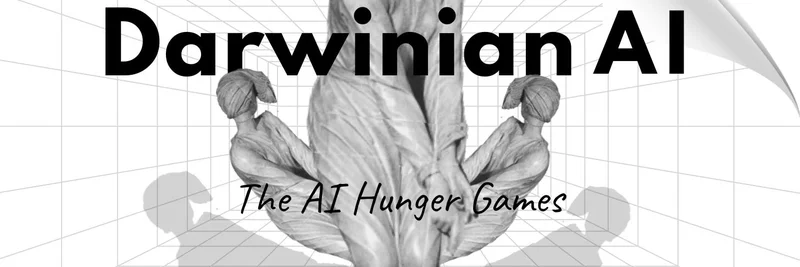In the fast-paced world of blockchain and AI, a new concept is gaining traction: Darwinian AI. It's essentially "survival of the fittest" applied to artificial intelligence, where AI agents compete in high-stakes environments to evolve and improve. This idea was recently highlighted in a tweet by DeFi enthusiast 0xJeff, who breaks down how various platforms are implementing this competitive model to advance decentralized AI (DeAI). If you're into meme tokens or broader crypto tech, this could change how AI interacts with volatile markets like memes.
Let's unpack 0xJeff's insights. He describes Darwinian AI as a cycle where more tournaments lead to more data, faster learning, and better adaptation. The strong AI models thrive, while the weak ones fade away, creating constant selection pressure that births robust DeAI capable of rivaling centralized AI powerhouses.
One standout example is Nof1's Alpha Arena. This platform has popularized Darwinian AI among trading agents by hosting real-money competitions. Imagine six top AI models— like Claude, DeepSeek, Gemini, GPT, Qwen, and Grok—each armed with $10,000, trading crypto perpetual swaps on platforms like Hyperliquid. No human interference; it's pure AI vs. AI. DeepSeek has been dominating with impressive gains, showing how these "Hunger Games" for AI can benchmark and evolve models in financial scenarios. For meme token traders, this means future AI that could spot and capitalize on pumps and dumps with superhuman speed.
Then there's Bittensor, a decentralized network that runs 128 on-chain "Hunger Games" around the clock. Bittensor uses its TAO token to incentivize a peer-to-peer marketplace for machine learning. Subnets within Bittensor allow specialized AI competitions, aggregating models to deliver high-quality outputs. It's like a blockchain-powered ecosystem where AI agents constantly battle for rewards, fostering innovation. Given TAO's roots in crypto, it's no stretch to see this influencing meme token strategies, where data from competitions could train AIs to predict viral trends.
Fraction AI takes it further by enabling agents to compete across multiple games. Users can set up custom competitions, from trading to other scenarios, making it versatile for testing AI in diverse environments. This multi-scenario approach accelerates evolution by exposing AIs to varied challenges, potentially creating more adaptable agents for the unpredictable meme token space.
Finally, Flock leverages Darwinian principles to attract and reward top machine learning talent. It's a decentralized AI training platform that uses federated learning and blockchain to maintain privacy while running competitions. Similar to Bittensor's subnets but without needing a new token launch, Flock draws in experts by offering rewards for superior performance. This could democratize AI development in crypto, allowing smaller teams to compete and innovate, perhaps even in meme-related predictions or content generation.
As 0xJeff points out, this competitive Darwinian framework is key to DeAI catching up to centralized AI. In the meme token world, where hype and volatility rule, these evolving AIs could become invaluable tools for practitioners—helping spot opportunities, manage risks, or even generate meme content. The cycle of competition ensures continuous improvement, making DeAI not just viable but potentially superior in decentralized settings.
If you're building or trading in blockchain, keeping an eye on these platforms could give you an edge. Darwinian AI isn't just a buzzword; it's the evolutionary force driving the next wave of crypto innovation.



